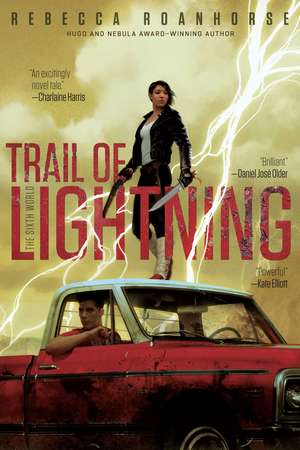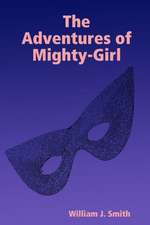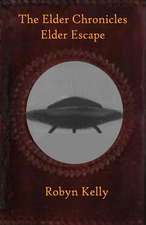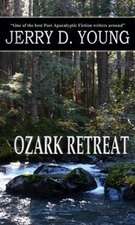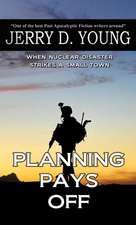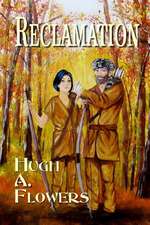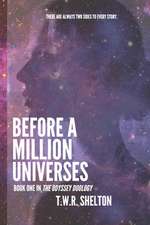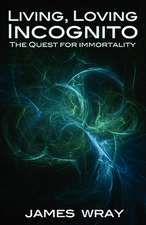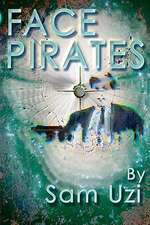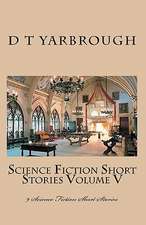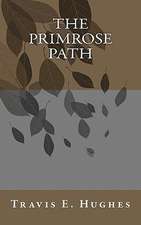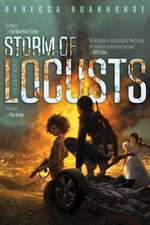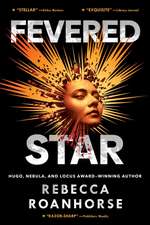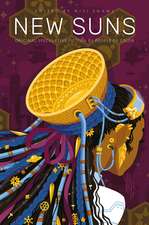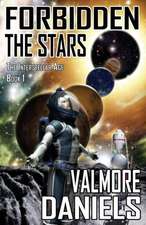Trail of Lightning: The Sixth World, cartea 1
Autor Rebecca Roanhorseen Limba Engleză Paperback – 20 sep 2018
2019 LOCUS AWARD WINNER, BEST FIRST NOVEL
2019 HUGO AWARD FINALIST, BEST NOVEL
Nebula Award Finalist for Best Novel
One of Bustle’s Top 20 “landmark sci-fi and fantasy novels” of the decade
“Someone please cancel Supernatural already and give us at least five seasons of this badass Indigenous monster-hunter and her silver-tongued sidekick.” —The New York Times
“An excitingly novel tale.” —Charlaine Harris, #1 New York Times bestselling author of the Sookie Stackhouse and Midnight Crossroads series
“Fun, terrifying, hilarious, and brilliant.” —Daniel José Older, New York Times bestselling author of Shadowshaper and Star Wars: Last Shot
“A powerful and fiercely personal journey through a compelling postapocalyptic landscape.” —Kate Elliott, New York Times bestselling author of Court of Fives and Black Wolves
While most of the world has drowned beneath the sudden rising waters of a climate apocalypse, Dinétah (formerly the Navajo reservation) has been reborn. The gods and heroes of legend walk the land, but so do monsters—and it is up to one young woman to unravel the mysteries of the past before they destroy the future.
Maggie Hoskie is a Dinétah monster hunter, a supernaturally gifted killer. When a small town needs help finding a missing girl, Maggie is their last best hope. But what Maggie uncovers about the monster is much more terrifying than anything she could imagine.
Maggie reluctantly enlists the aid of Kai Arviso, an unconventional medicine man, and together they travel the rez, unraveling clues from ancient legends, trading favors with tricksters, and battling dark witchcraft in a patchwork world of deteriorating technology.
As Maggie discovers the truth behind the killings, she will have to confront her past if she wants to survive.
Welcome to the Sixth World.
Preț: 100.78 lei
Nou
Puncte Express: 151
Preț estimativ în valută:
19.29€ • 20.96$ • 16.21£
19.29€ • 20.96$ • 16.21£
Carte disponibilă
Livrare economică 31 martie-14 aprilie
Preluare comenzi: 021 569.72.76
Specificații
ISBN-13: 9781534413504
ISBN-10: 1534413502
Pagini: 304
Ilustrații: 6-c cvr--sfx: metallic stock; gritty matte, emboss
Dimensiuni: 152 x 229 x 23 mm
Greutate: 0.32 kg
Editura: S&S/Saga Press
Colecția S&S/Saga Press
Seria The Sixth World
ISBN-10: 1534413502
Pagini: 304
Ilustrații: 6-c cvr--sfx: metallic stock; gritty matte, emboss
Dimensiuni: 152 x 229 x 23 mm
Greutate: 0.32 kg
Editura: S&S/Saga Press
Colecția S&S/Saga Press
Seria The Sixth World
Notă biografică
Rebecca Roanhorse is the New York Times bestselling author of Trail of Lightning, Storm of Locusts, Star Wars: Resistance Reborn, and Race to the Sun. She has won the Nebula, Hugo, and Locus Awards for her fiction, and was the recipient of the 2018 Astounding (formerly Campbell) Award for Best New Writer. Her forthcoming book, Black Sun, is out in October. She lives in New Mexico with her family.
Extras
Trail of Lightning
The monster has been here. I can smell him.
His stench is part the acrid sweat of exertion, part the meaty ripeness of a carnivore’s unwashed flesh, and part something else I can’t quite name. It fouls the evening air, stretching beyond smell to something deeper, more base. It unsettles me, sets my own instincts howling in warning. Cold sweat breaks out across my forehead. I wipe it away with the back of my hand.
I can also smell the child he’s stolen. Her scent is lighter, cleaner. Innocent. She smells alive to me, or at least she was alive when she left here. By now she could smell quite different.
The door to the Lukachukai Chapter House swings open. A woman, likely the child’s mother, sits stone-faced in an old dented metal folding chair at the front of the small meeting room. She’s flanked by a middle-aged man in a Silver Belly cowboy hat and a teenage boy in army fatigues who looks a few years younger than me. The boy holds the woman’s hand and murmurs in her ear.
Most of the town of Lukachukai is here too. For support or for curiosity or because they are drawn to the spectacle of grief. They huddle in groups of two or three, hunched in morose clumps on the same battered gray chairs, breathing in stale air made worse by the bolted-up windows and the suffocating feel of too many people in too small a space. They are all locals, Navajos, or Diné as we call ourselves, whose ancestors have lived at the foothills of the Chuska Mountains for more generations than the bilagáanas have lived on this continent, who can still tell stories of relatives broken and murdered on the Long Walk or in Indian boarding schools like it was last year, who have likely never traveled off the reservation, even back when it was just a forgotten backwater ward of the United States and not Dinétah risen like it is today. These Diné know the old stories sung by the hataalii, the ancient legends of monsters and the heroes who slew them, even before the monsters rose up out of legend to steal village children from their beds. And now they are looking to me to be their hero.
But I’m no hero. I’m more of a last resort, a scorched-earth policy. I’m the person you hire when the heroes have already come home in body bags.
My moccasins make no noise as I cross the cracked tile floor to stand in front of the mother. Whispered conversations hush in my wake and heads turn to stare. My reputation obviously precedes me, and not all of the looks are friendly. A group of boys who must be the teenage boy’s friends loiter along the far wall. They snicker loudly, eyes following me, and no one bothers to shush them. I ignore them and tell myself I don’t care. That I’m here to do a job and get paid, and what Lukachukai thinks of me beyond that doesn’t matter. But I’ve always been a terrible liar.
The mother has only one question for me.
“Can you save her?”
Can I? That’s the real question, isn’t it? What good are my skills, my clan powers, if I can’t save her?
“I can find her,” I say. And I can, no doubt. But saving and finding are two different things. The mother seems to sense that, and she shuts her eyes and turns away from me.
With a clearing of his throat, the man in the cowboy hat pushes himself up from his chair. He’s wearing old faded Levi’s that probably fit ten years ago but now shrink back to leave his belly protruding over his belt buckle. A similarly ill-fitting cowboy shirt covers his aging paunch, and the look he gives me through bloodshot eyes tells me he’s already in mourning. That maybe he doesn’t believe much in saving either.
He introduces the mother, the boy, and then himself. First and last name, and then clans, like you’re supposed to. He’s the missing girl’s uncle, the boy is her brother. They are all Begays, a last name as common here as Smith is to the bilagáanas. But his clans, the ancestral relations that make him Diné and decide our kinship obligations, are unfamiliar to me.
He pauses, waiting for me to give my name and clans so he and the others can place me in their little world, decide our relations and what k’é they might owe me. And what k’é I owe them. But I don’t oblige him. I’ve never been much for tradition, and it’s better all around if we just stay strangers.
Finally, the older Begay nods, understanding I’m not inclined toward proper Diné etiquette, and gestures to the cloth bag at his feet. “This is all we have for trade,” he says. His hands tremble as he speaks, which makes me think he’s as bad a liar as I am, but he raises his chin defiantly, eyes wide under the brim of his hat.
I step forward and crouch to look through the bag, doing the quick math in my head. The silver jewelry is nice—beads, old stampworked bracelets, a few small squash blossoms—even if the turquoise is sort of junk, missing the spidery veins that make the rocks worth big trade. I can exchange the silver for goods at the markets in Tse Bonito, but the turquoise is useless, no more than pretty blue stones.
“The turquoise is shit,” I tell him.
A loud grunt and the brother pushes his chair back. The metal feet screech across the tile in protest. He makes a show of crossing his arms in disgust.
I ignore him and look back at the uncle. “Maybe you should find someone else. Law Dogs or Thirsty Boys.”
He shakes his head, his moment of bravado leaking away under the weight of limited options. “We tried. Nobody came. We wouldn’t have sent a runner if we weren’t . . .”
Desperate. He doesn’t have to say it. I get it.
The runner was a kid on a motorbike. Short and squat, so runner was a bit of a misnomer, but he wore a pair of ancient Nikes, duct tape wrapped carefully thick around the toe and reinforcing the seam at the heel, so what do I know? He sat in my yard with the bike’s motor idling loudly, making my dogs bark. I came to the door to tell him to go the hell away. That I wasn’t in the monster-hunting business anymore. But he told me Lukachukai needed help and nobody else would come and there was a little girl and besides they were paying. I said it wasn’t my problem, but the kid was persistent, and the truth was I was interested. All I’d been doing the past nine months was staring at the walls of my trailer, so what else did I have to do? Plus, I was getting low on funds and could use the trade. So when the kid refused to leave, I decided I’d go to Lukachukai. But now I’m starting to regret it. I’d forgotten in my months of self-imposed isolation how much I hate a crowd, and how much a crowd hates me.
The uncle spreads his hands, eyes begging where words fail. “I thought, maybe once you saw . . .”
And I do see. But I figure the Begays are holding out. Maybe they don’t want to pay because I’m a woman.
Maybe because I’m not Him.
“This is bullshit,” the brother says loudly, and his challenge sends a nervous titter rippling through the gathering. “What can she do that we can’t do?” He gestures to encompass his posse of friends along the wall. “Clan powers? She won’t even tell us what her clans are. And Neizghání’s apprentice? We only have her word for it.”
At the mention of Neizghání’s name my heart speeds up and I can’t breathe past the knot in my throat. But I force myself to swallow down the familiar hurt, the ache of abandonment. The pathetic flutter of desire. I haven’t been Neizghání’s anything for a long while now.
“Not just her word,” the uncle says. “Everyone says it.”
“Everyone? Everyone says she’s not right. That she’s wrong, Navajo way. That’s what everyone says.”
A general burst of murmuring through the crowd, comparing notes on my wrongness, no doubt. But the uncle quiets them down with a flapping wave of his hands.
“She’s the only one who came. What do you want me to do? Send her away? Leave your sister out there at night with that thing that took her?”
“Send me!” he shouts.
“No! The mountain’s no place to be after dark. The monsters . . .” His eyes flicker to me, the person he is willing to send up the mountain after dark. But there’s nothing like consternation on his face. After all, he’s paying me to risk my life, although it’s a pretty stingy deal. The nephew is a relative, and another matter. “We already lost one,” he finishes weakly.
For a moment the boy looks like he’ll challenge his uncle, but he catches his mother’s gaze and his shoulders fall. He exhales loudly and slumps in his seat. “I’m not scared,” he mutters, a final volley. But it’s not true. He’s all show in those army castoffs and he surrendered quick enough. I glance over at his boys against the wall. Quiet now, looking everywhere but at their friend. I revise his age down a few years.
I let my eyes drift toward the boarded-up window where outside the sun is swiftly setting. If I had a watch, I’d make a show of checking it.
“Seems to me all this talk is just wasting my daylight,” I tell them. “Pay me what I’m worth and let me do my job or don’t pay and let me go home. Makes no difference to me.” I pause before I look at the mother. “But it might make a difference to your daughter.”
The boy flinches. I get a small tick of pleasure watching him flush in shame before a voice cuts through the heavy air.
“Do you have clan powers?” It’s the first thing the mother’s said since she asked if I could find her daughter. She seems startled by her own outburst and raises her hands as if to cover her mouth. But she stops short, lowers her hands to her lap, and grips the fabric of her long skirt before she adds quietly, “Like him, the Monsterslayer. The rumor is you do. That he taught you. That you’re . . . like him.”
I’m not like Neizghání, no. He is the Monsterslayer of legend, an immortal who is the son of two Holy People. I’m human, a five-fingered girl. But I’m not exactly normal, either, not like this brother and his friends. If the others asked, the boy or the uncle, I would refuse. But I won’t deny a grieving mother.
“Honágháahnii, born for K’aahanáanii.” Only my first two clans, but that’s enough.
The crowd’s muttered suspicions rise to vocal hostility, and one of the boys barks something ugly at me.
The mother stands up, back straight, and silences the crowd with a hard stare. Her eyes fill with something fierce that stirs my sympathy in spite of my best efforts not to give a damn. “We have more,” she says. The uncle starts to protest, but she cuts him off, her voice louder, commanding. “We have more trade. We’ll pay. Just find her. Find my daughter.”
And that’s my cue.
I roll my shoulders, shifting the shotgun in the holster across my back. Habit makes me briefly palm the belt of shotgun shells at my waist and the Böker hunting knife sheathed against my hip. Fingertips brush the throwing knives tucked in the tops of my moccasin wraps, silver on the right, obsidian on the left. I sling my pack over my shoulder and turn on silent feet, moving through the muted crowd. Keep my head up, my hands loose, and my eyes straight ahead. I push the door open and step out of the stifling Chapter House just as the brother shouts, “What if you don’t come back?”
I don’t bother to answer. If I don’t come back, Lukachukai’s got bigger problems than one missing girl.
Chapter 1
The monster has been here. I can smell him.
His stench is part the acrid sweat of exertion, part the meaty ripeness of a carnivore’s unwashed flesh, and part something else I can’t quite name. It fouls the evening air, stretching beyond smell to something deeper, more base. It unsettles me, sets my own instincts howling in warning. Cold sweat breaks out across my forehead. I wipe it away with the back of my hand.
I can also smell the child he’s stolen. Her scent is lighter, cleaner. Innocent. She smells alive to me, or at least she was alive when she left here. By now she could smell quite different.
The door to the Lukachukai Chapter House swings open. A woman, likely the child’s mother, sits stone-faced in an old dented metal folding chair at the front of the small meeting room. She’s flanked by a middle-aged man in a Silver Belly cowboy hat and a teenage boy in army fatigues who looks a few years younger than me. The boy holds the woman’s hand and murmurs in her ear.
Most of the town of Lukachukai is here too. For support or for curiosity or because they are drawn to the spectacle of grief. They huddle in groups of two or three, hunched in morose clumps on the same battered gray chairs, breathing in stale air made worse by the bolted-up windows and the suffocating feel of too many people in too small a space. They are all locals, Navajos, or Diné as we call ourselves, whose ancestors have lived at the foothills of the Chuska Mountains for more generations than the bilagáanas have lived on this continent, who can still tell stories of relatives broken and murdered on the Long Walk or in Indian boarding schools like it was last year, who have likely never traveled off the reservation, even back when it was just a forgotten backwater ward of the United States and not Dinétah risen like it is today. These Diné know the old stories sung by the hataalii, the ancient legends of monsters and the heroes who slew them, even before the monsters rose up out of legend to steal village children from their beds. And now they are looking to me to be their hero.
But I’m no hero. I’m more of a last resort, a scorched-earth policy. I’m the person you hire when the heroes have already come home in body bags.
My moccasins make no noise as I cross the cracked tile floor to stand in front of the mother. Whispered conversations hush in my wake and heads turn to stare. My reputation obviously precedes me, and not all of the looks are friendly. A group of boys who must be the teenage boy’s friends loiter along the far wall. They snicker loudly, eyes following me, and no one bothers to shush them. I ignore them and tell myself I don’t care. That I’m here to do a job and get paid, and what Lukachukai thinks of me beyond that doesn’t matter. But I’ve always been a terrible liar.
The mother has only one question for me.
“Can you save her?”
Can I? That’s the real question, isn’t it? What good are my skills, my clan powers, if I can’t save her?
“I can find her,” I say. And I can, no doubt. But saving and finding are two different things. The mother seems to sense that, and she shuts her eyes and turns away from me.
With a clearing of his throat, the man in the cowboy hat pushes himself up from his chair. He’s wearing old faded Levi’s that probably fit ten years ago but now shrink back to leave his belly protruding over his belt buckle. A similarly ill-fitting cowboy shirt covers his aging paunch, and the look he gives me through bloodshot eyes tells me he’s already in mourning. That maybe he doesn’t believe much in saving either.
He introduces the mother, the boy, and then himself. First and last name, and then clans, like you’re supposed to. He’s the missing girl’s uncle, the boy is her brother. They are all Begays, a last name as common here as Smith is to the bilagáanas. But his clans, the ancestral relations that make him Diné and decide our kinship obligations, are unfamiliar to me.
He pauses, waiting for me to give my name and clans so he and the others can place me in their little world, decide our relations and what k’é they might owe me. And what k’é I owe them. But I don’t oblige him. I’ve never been much for tradition, and it’s better all around if we just stay strangers.
Finally, the older Begay nods, understanding I’m not inclined toward proper Diné etiquette, and gestures to the cloth bag at his feet. “This is all we have for trade,” he says. His hands tremble as he speaks, which makes me think he’s as bad a liar as I am, but he raises his chin defiantly, eyes wide under the brim of his hat.
I step forward and crouch to look through the bag, doing the quick math in my head. The silver jewelry is nice—beads, old stampworked bracelets, a few small squash blossoms—even if the turquoise is sort of junk, missing the spidery veins that make the rocks worth big trade. I can exchange the silver for goods at the markets in Tse Bonito, but the turquoise is useless, no more than pretty blue stones.
“The turquoise is shit,” I tell him.
A loud grunt and the brother pushes his chair back. The metal feet screech across the tile in protest. He makes a show of crossing his arms in disgust.
I ignore him and look back at the uncle. “Maybe you should find someone else. Law Dogs or Thirsty Boys.”
He shakes his head, his moment of bravado leaking away under the weight of limited options. “We tried. Nobody came. We wouldn’t have sent a runner if we weren’t . . .”
Desperate. He doesn’t have to say it. I get it.
The runner was a kid on a motorbike. Short and squat, so runner was a bit of a misnomer, but he wore a pair of ancient Nikes, duct tape wrapped carefully thick around the toe and reinforcing the seam at the heel, so what do I know? He sat in my yard with the bike’s motor idling loudly, making my dogs bark. I came to the door to tell him to go the hell away. That I wasn’t in the monster-hunting business anymore. But he told me Lukachukai needed help and nobody else would come and there was a little girl and besides they were paying. I said it wasn’t my problem, but the kid was persistent, and the truth was I was interested. All I’d been doing the past nine months was staring at the walls of my trailer, so what else did I have to do? Plus, I was getting low on funds and could use the trade. So when the kid refused to leave, I decided I’d go to Lukachukai. But now I’m starting to regret it. I’d forgotten in my months of self-imposed isolation how much I hate a crowd, and how much a crowd hates me.
The uncle spreads his hands, eyes begging where words fail. “I thought, maybe once you saw . . .”
And I do see. But I figure the Begays are holding out. Maybe they don’t want to pay because I’m a woman.
Maybe because I’m not Him.
“This is bullshit,” the brother says loudly, and his challenge sends a nervous titter rippling through the gathering. “What can she do that we can’t do?” He gestures to encompass his posse of friends along the wall. “Clan powers? She won’t even tell us what her clans are. And Neizghání’s apprentice? We only have her word for it.”
At the mention of Neizghání’s name my heart speeds up and I can’t breathe past the knot in my throat. But I force myself to swallow down the familiar hurt, the ache of abandonment. The pathetic flutter of desire. I haven’t been Neizghání’s anything for a long while now.
“Not just her word,” the uncle says. “Everyone says it.”
“Everyone? Everyone says she’s not right. That she’s wrong, Navajo way. That’s what everyone says.”
A general burst of murmuring through the crowd, comparing notes on my wrongness, no doubt. But the uncle quiets them down with a flapping wave of his hands.
“She’s the only one who came. What do you want me to do? Send her away? Leave your sister out there at night with that thing that took her?”
“Send me!” he shouts.
“No! The mountain’s no place to be after dark. The monsters . . .” His eyes flicker to me, the person he is willing to send up the mountain after dark. But there’s nothing like consternation on his face. After all, he’s paying me to risk my life, although it’s a pretty stingy deal. The nephew is a relative, and another matter. “We already lost one,” he finishes weakly.
For a moment the boy looks like he’ll challenge his uncle, but he catches his mother’s gaze and his shoulders fall. He exhales loudly and slumps in his seat. “I’m not scared,” he mutters, a final volley. But it’s not true. He’s all show in those army castoffs and he surrendered quick enough. I glance over at his boys against the wall. Quiet now, looking everywhere but at their friend. I revise his age down a few years.
I let my eyes drift toward the boarded-up window where outside the sun is swiftly setting. If I had a watch, I’d make a show of checking it.
“Seems to me all this talk is just wasting my daylight,” I tell them. “Pay me what I’m worth and let me do my job or don’t pay and let me go home. Makes no difference to me.” I pause before I look at the mother. “But it might make a difference to your daughter.”
The boy flinches. I get a small tick of pleasure watching him flush in shame before a voice cuts through the heavy air.
“Do you have clan powers?” It’s the first thing the mother’s said since she asked if I could find her daughter. She seems startled by her own outburst and raises her hands as if to cover her mouth. But she stops short, lowers her hands to her lap, and grips the fabric of her long skirt before she adds quietly, “Like him, the Monsterslayer. The rumor is you do. That he taught you. That you’re . . . like him.”
I’m not like Neizghání, no. He is the Monsterslayer of legend, an immortal who is the son of two Holy People. I’m human, a five-fingered girl. But I’m not exactly normal, either, not like this brother and his friends. If the others asked, the boy or the uncle, I would refuse. But I won’t deny a grieving mother.
“Honágháahnii, born for K’aahanáanii.” Only my first two clans, but that’s enough.
The crowd’s muttered suspicions rise to vocal hostility, and one of the boys barks something ugly at me.
The mother stands up, back straight, and silences the crowd with a hard stare. Her eyes fill with something fierce that stirs my sympathy in spite of my best efforts not to give a damn. “We have more,” she says. The uncle starts to protest, but she cuts him off, her voice louder, commanding. “We have more trade. We’ll pay. Just find her. Find my daughter.”
And that’s my cue.
I roll my shoulders, shifting the shotgun in the holster across my back. Habit makes me briefly palm the belt of shotgun shells at my waist and the Böker hunting knife sheathed against my hip. Fingertips brush the throwing knives tucked in the tops of my moccasin wraps, silver on the right, obsidian on the left. I sling my pack over my shoulder and turn on silent feet, moving through the muted crowd. Keep my head up, my hands loose, and my eyes straight ahead. I push the door open and step out of the stifling Chapter House just as the brother shouts, “What if you don’t come back?”
I don’t bother to answer. If I don’t come back, Lukachukai’s got bigger problems than one missing girl.
Recenzii
A NPR 2018 Great Reads Selection for Best Science Fiction/Fantasy
A Library Journal Best Book of 2018 Selection
A Kirkus Reviews Best of the Best Science Fiction and Fantasy of 2018 Selection
An Amazon Best Science Fiction and Fantasy of 2018 Selection
A B&N Sc-Fi & Fantasy 50 Greatest Debut SFF Novels Ever Written Selection
A Tor.com Best Book of 2018 - So Far Selection
A B&N Sci-Fi & Fantasy Best Book of 2018 So Far Selection
Selected as a Highly Anticipated Summer Read by Amazon, Barnes & Noble, and iBooks.
An Amazon Best Book of the Month Selection
One of Bustle's top 20 books of the decade
“Someone please cancel ‘Supernatural’ already and give us at least five seasons of this badass indigenous monster-hunter and her silver-tongued sidekick."
“What an astonishing tour de force with thrilling action, fascinating characters and a near future vision of America that I've never seen before. Urban fantasy just got a whole new lease on life.”
* "Roanhorse vividly depicts Navajo land, legends, and culture in her marvelous fantasy debut."
* "This exciting postapocalyptic debut, with its heady combination of smartly drawn characters, Wild West feel, and twisty plot, is a must-read."
"Super great! It is so exciting to read such a fresh take on Urban Fantasy."
"It’s the perfect book to pack for the beach or on a summer trip.”
“Roanhorse is indigenizing the future of science fiction and fantasy.”
“What’s not to love about Trail of Lightning? It’s a frakking awesome novel and a fantastic prelude to what is sure to be a thrilling series.”
"This is a fast, fun read."
"Trail of Lightning has set a new standard for speculative fiction."
"Roanhorse writes this page-turner with visceral clarity."
“A sharp, wonderfully dreamy, action-driven novel.”
"I could have read about Maggie, her badassery, her damage, and her perseverance for hundreds more pages."
"It's tense and exciting, and a wholly new turn on post-apocalyptic tropes."
"Riveting and relentless."
A Library Journal Best Book of 2018 Selection
A Kirkus Reviews Best of the Best Science Fiction and Fantasy of 2018 Selection
An Amazon Best Science Fiction and Fantasy of 2018 Selection
A B&N Sc-Fi & Fantasy 50 Greatest Debut SFF Novels Ever Written Selection
A Tor.com Best Book of 2018 - So Far Selection
A B&N Sci-Fi & Fantasy Best Book of 2018 So Far Selection
Selected as a Highly Anticipated Summer Read by Amazon, Barnes & Noble, and iBooks.
An Amazon Best Book of the Month Selection
One of Bustle's top 20 books of the decade
“Someone please cancel ‘Supernatural’ already and give us at least five seasons of this badass indigenous monster-hunter and her silver-tongued sidekick."
“What an astonishing tour de force with thrilling action, fascinating characters and a near future vision of America that I've never seen before. Urban fantasy just got a whole new lease on life.”
* "Roanhorse vividly depicts Navajo land, legends, and culture in her marvelous fantasy debut."
* "This exciting postapocalyptic debut, with its heady combination of smartly drawn characters, Wild West feel, and twisty plot, is a must-read."
"Super great! It is so exciting to read such a fresh take on Urban Fantasy."
"It’s the perfect book to pack for the beach or on a summer trip.”
“Roanhorse is indigenizing the future of science fiction and fantasy.”
“What’s not to love about Trail of Lightning? It’s a frakking awesome novel and a fantastic prelude to what is sure to be a thrilling series.”
"This is a fast, fun read."
"Trail of Lightning has set a new standard for speculative fiction."
"Roanhorse writes this page-turner with visceral clarity."
“A sharp, wonderfully dreamy, action-driven novel.”
"I could have read about Maggie, her badassery, her damage, and her perseverance for hundreds more pages."
"It's tense and exciting, and a wholly new turn on post-apocalyptic tropes."
"Riveting and relentless."
